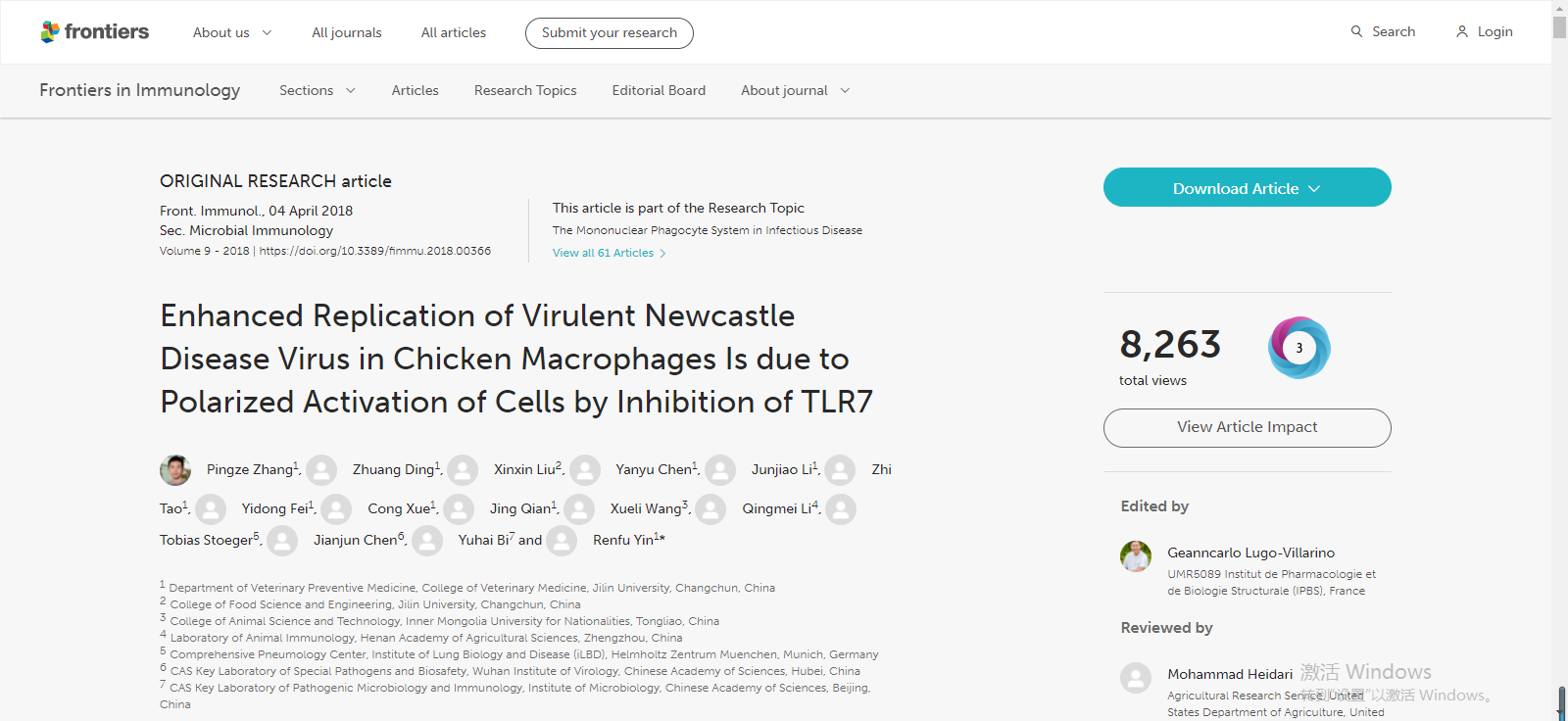
The full text was published online on Frontiers in Immunology ( IF: 6.429)on April 4, 2018, led by Professor Ding Zhuang and Associate Professor Yin Renfu, in collaboration with Wuhan Institute of Virology, Chinese Academy of Sciences, Institute of Microbiology, Chinese Academy of Sciences and Helmholtz and other 7 units at home and abroad. The latest research results "Enhanced Replication of Virulent Newcastle Disease Virus in Chicken Macrophages is due to Polarized Activation of Cells by Inhibition of TLR7" shows the relationship between Newcastle disease virus infection and host innate immunity by the Munich Research Center. Newcastle disease is the first type of animal disease and the second type of zoonotic disease that the country focuses on prevention and control; Newcastle disease virus as a representative strain of paramyxovirus, the trend of zoonoses has become more and more obvious, and its infection mechanism has been the hot topic of domestic and foreign peer research. Respiratory tract is the primary route of Newcastle disease virus infection. Therefore, alveolar macrophages, which are the first line of defense in the respiratory system, become the key node for the success of infection by strong and weak strains. Studies have found that after a virulent virus infects macrophages, it inhibits the expression of host TLR7 receptors, forcing macrophages to be polarized into a strong M1/M2 mixed type, so that the virus itself can rapidly multiply on macrophages with strong Type I interferon response, cytokine storm and other phenomena; although the attenuated virus multiplies rapidly in the early stage, the proliferation of the virus is obviously inhibited in the later stage of the infection, because the macrophages cannot be hijacked by the attenuated virus, and show slight M1 or M2 according to their own needs Type polarization classification characteristics. This research result deeply analyzes the interaction mechanism of Newcastle disease virus and host natural immunity, which can provide new ideas for the prevention and treatment of this disease. The research results were funded by the National Natural Science Foundation of China (31402195, 31472195) and the national key research and development project (2017YFD0500800).
For the full text of the article, please see: https://www.frontiersin.org/articles/10.3389/fimmu.2018.00366/full
